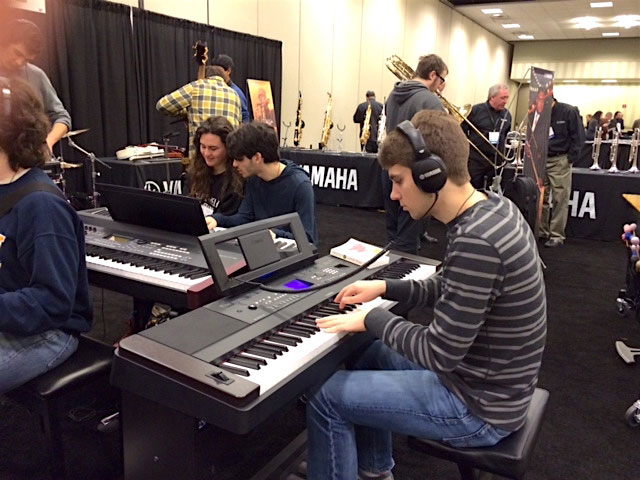
Music conferences offer students as well as seasoned musicians a wealth of professional opportunities. They are motivating and help recharge your battery. They even help set future goals. Consider music conferences an essential component of your training and career.
Here’s why:
Music conferences “grow” your professional network and your opportunities for future collaboration. They build your knowledge base in a variety of ways. You get to:
• Hear about potential job openings.
• Stay current in the field.
• Discover mentors.
• Learn about new thinking, technology, music literature, classroom materials and curriculum initiatives, research, and unique approaches to problem-solving.
• See “state-of-the-art” student and professional performances.
How to prepare
You’ll get more out of a music conference if you do some advance preparation.
1. If the conference is offered through a professional association, check their website for the conference program. The program may also be available through an app like Core-Apps or Guidebook.
2. Review the sessions to be offered. They’re typically listed in chronological order or by content strands.
3. Look for keynote speakers, guest clinicians, showcase demonstrations, association or committee meetings, and performances.
4. See if there’s a conference planning app for setting up your schedule (“where to go and what to do”), reading the bios of the presenters, locating session rooms and exhibit booths, learning who is attending, taking notes, and hearing about last minute changes. Highlight areas of your highest interest.
5. Plan to stay at or near the venue where the conference is being held. Many conferences offer roommate options to help save money as well as conference block rates. Staying at or near the conference will allow you to focus on the conference events rather than worrying about getting to and from the conference. But this means signing up early as conference blocks sell out.
6. Prepare your business cards and review your networking skills. You’ll want people you meet to remember you.
Once you’re there
Don’t remain in your “comfort zone” by sitting exclusively with your friends and colleagues at every session and concert. For the sake of networking opportunities, get to know other professionals, possible job screeners or collaborators, etc.
Instead of attending sessions or concerts only in your specialty or most proficient areas, attend some that are not directly related to your major field. You may be surprised at the connections you discover or the new interests that arise.
8 tips for maximizing the takeaways from music conferences
1. Don’t be shy! Music conferences are no place to be timid or afraid to start up a discussion with more experienced professionals.
2. Circulate and introduce yourself. Be your “most charming self.”
3. Attend all general sessions. These usually feature the keynote speakers, association officers, and a special performance or award presentation.
4. Don’t be the first person to leave a session. Leaving early can be seen as disruptive and rude, and doesn’t let you to get the “whole picture” of the presentation or hear or participate in the Q&A, which may be as valuable as the presentation itself.
5. Look for special sessions on interviewing and landing a job.
6. Some of the best takeaways happen informally – over a meal, after a session, at continental breakfasts or coffee hours before the daily sessions start, and on the shuttle to/from the airport. Be prepared – even seek opportunities for this to happen.
7. Take time for a walk and for a breath of fresh air, and to regroup with yourself. Music conferences can be overstimulating and typically don’t leave much time for sleep.
8. Take notes about your experience during the conference and right after. Decide what you need and want to follow up on. Follow up with anyone you met who may be able to help you move forward in your education or career.
Paul Fox, BFA, Music/Viola; MFA, Music Education (Carnegie Mellon University) is the State Retired Members’ Coordinator for the Pennsylvania Music Educators Association. As a music educator, he taught orchestra, choral and general music, elementary band, music theory; produced school musicals; and more. Visit his blogpost at paulkfoxusc.

